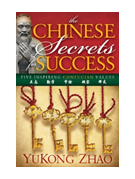Bilateral trade will be a major topic in the first-ever face-off Thursday between two tough leaders: President Trump and Chinese President Xi Jinping. Can the summit, on Trump’s turf in Palm Beach, yield positive results that fulfill many of the promises Trump made during his campaign: to negotiate better trade deals, bring manufacturing jobs back and implement a border adjustment tax?
Over the past few months, politicians and commentators from either the anti-Trump camp or conservative free-trade proponents have raised many doubts about Trump’s trade-policy proposals. They argued that trade negotiations will not bring manufacturing jobs back, but will only lead to retaliation from our trading partners, such as China and Mexico, creating a devastating impact on American economies. They also warned that the border adjustment tax would increase retail prices, hurting retailers and consumers.
As a businessman who has been deeply involved with international business with China and other nations, I do not believe it is feasible to fully achieve Trump’s promises. For example, we cannot bring back most jobs in labor-intensive industries, such as textiles, clothing and shoes, because of our high labor costs. Similarly, a cookie-cutter border adjustment tax applied to all imports surely would hurt most American consumers.
However, with a $500 billion annual trade deficit and the decline of manufacturing industries over the past few decades, America cannot afford the status quo. In reality, in many areas America could achieve fair and free trade deals if analytics-based smart-trade policies were developed.
For example, many developing nations set up local content requirements to limit foreign imports. It forces foreign companies to manufacture locally and transfer technologies to these nations. It makes sense to help local economies by manufacturing part of the goods locally to the degree economics justifies.
However, many American companies are disadvantaged by heavy-handed governments that have forced them to manufacture a larger scope than the economics justified and/or transfer core technologies. This goes beyond the definition of fair and free trade because the American government does not require our trading partners to do the same. Smart trade policies can be achieved by identifying and tackling such trade barriers.
Smart trade policies can also be developed on a border adjustment tax, the most controversial trade policy Trump proposed. As a matter of fact, this tax has its merit because it offsets the value-added tax exemption for exporting goods implemented by many American trading partners who use the value-added tax for their manufacturing sectors. This value-added tax exemption by foreign governments puts American manufacturers in a disadvantaged position against foreign competitors who can sell their goods in the U.S. without paying corporate tax.
The dilemma is that the Trump administration either implements a border adjustment tax that protects American manufacturers but hurts consumers, or keeps the status quo, in which American manufacturers are not properly protected.
Actually, the U.S. can learn something from China when formulating border adjustment taxes. Each year the Chinese government issues an industrial guideline on foreign investment. For the industries in which China needs technologies and investment, it encourages foreign investment. For the industries with Chinese companies that need protection, it discourages or totally bans foreign investment. Though this policy has been widely criticized by Western free-market proponents, nobody can deny that China’s industrial policies have accelerated its rapid economic growth in recent decades.
Using a similar approach, America could categorize imports: the ones that have no competition with American companies, and the ones that have direct competition with American companies. In this way, we can forgo the border adjustment tax for the goods we do not produce. This will take up a large part of consumer goods and avoid a price increase for our retailers and consumers. For the goods where we compete, a reasonable border adjustment tax will level the playing fields.
This could be a win-win approach that protects American manufacturers while minimizing the negative impact on American consumers and retailers. Not applying a border adjustment tax to all imports would also make trade negotiation easier with our trading partners, including China.
By adopting such a pragmatic and analytic approach, Trump should reach a win-win trade deal with Xi without bringing two nations into a disastrous trade war.
Note: YuKong Zhao of Orlando has more than 10 years of experience as the director of China business development in a multinational conglomerate and as an industrial strategy consultant in a Chinese policy institute. This article was first published by Orlando Sentinel on April 15, 2017.



